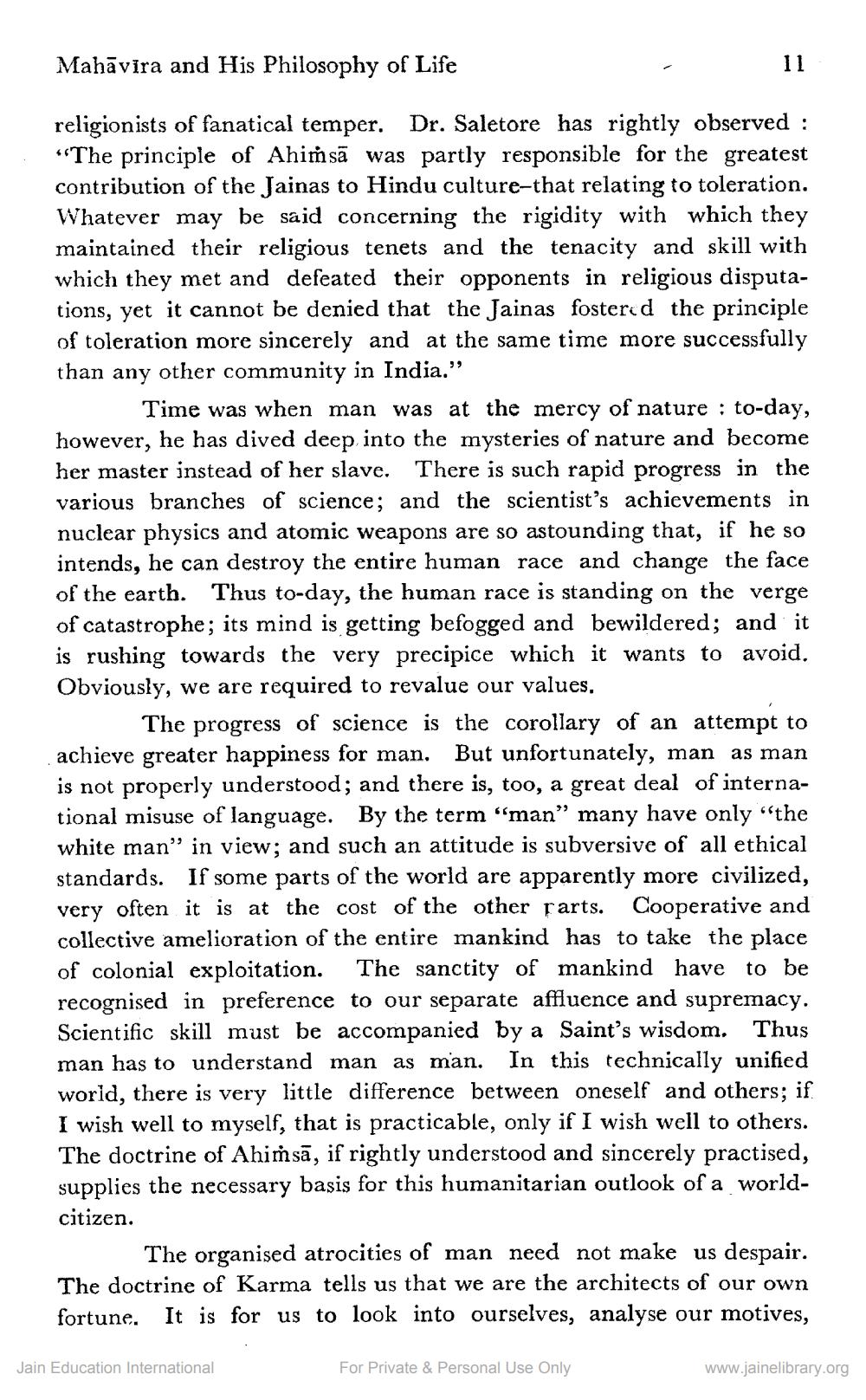________________
Mahāvira and His Philosophy of Life
religionists of fanatical temper. Dr. Saletore has rightly observed : "The principle of Ahimsa was partly responsible for the greatest contribution of the Jainas to Hindu culture-that relating to toleration. Whatever may be said concerning the rigidity with which they maintained their religious tenets and the tenacity and skill with which they met and defeated their opponents in religious disputations, yet it cannot be denied that the Jainas fostered the principle of toleration more sincerely and at the same time more successfully than any other community in India."
11
Time was when man was at the mercy of nature to-day, however, he has dived deep into the mysteries of nature and become her master instead of her slave. There is such rapid progress in the various branches of science; and the scientist's achievements in nuclear physics and atomic weapons are so astounding that, if he so intends, he can destroy the entire human race and change the face of the earth. Thus to-day, the human race is standing on the verge of catastrophe; its mind is getting befogged and bewildered; and it is rushing towards the very precipice which it wants to avoid. Obviously, we are required to revalue our values.
The progress of science is the corollary of an attempt to achieve greater happiness for man. But unfortunately, man as man is not properly understood; and there is, too, a great deal of international misuse of language. By the term "man" many have only "the white man" in view; and such an attitude is subversive of all ethical standards. If some parts of the world are apparently more civilized, very often it is at the cost of the other parts. Cooperative and collective amelioration of the entire mankind has to take the place of colonial exploitation. The sanctity of mankind have to be recognised in preference to our separate affluence and supremacy. Scientific skill must be accompanied by a Saint's wisdom. Thus man has to understand man as man. In this technically unified world, there is very little difference between oneself and others; if I wish well to myself, that is practicable, only if I wish well to others. The doctrine of Ahimsā, if rightly understood and sincerely practised, supplies the necessary basis for this humanitarian outlook of a worldcitizen.
The organised atrocities of man need not make us despair. The doctrine of Karma tells us that we are the architects of our own fortune. It is for us to look into ourselves, analyse our motives,
Jain Education International
For Private & Personal Use Only
www.jainelibrary.org




